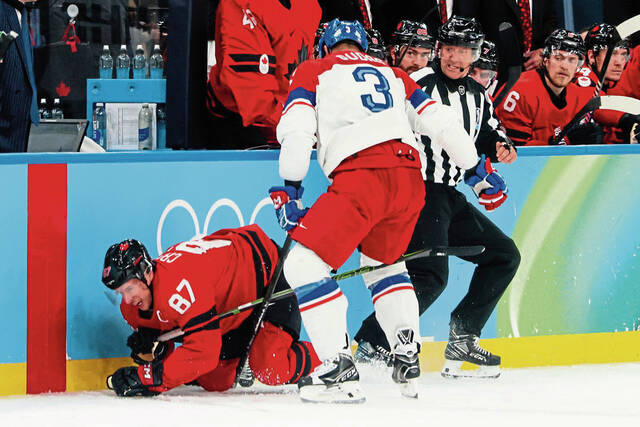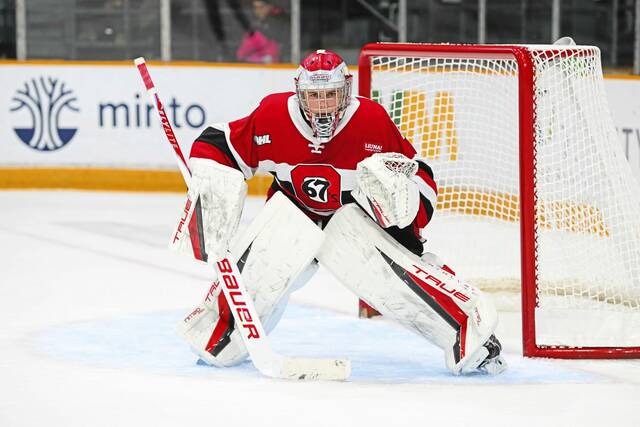Before the Pittsburgh Penguins left town for the All-Star break, head coach Mike Sullivan did his best to summarize the way his team has been playing.
“There’s been volatility in our game. We’ve got to bring a consistent game every night. We’ve got to put a game on the ice that gives us the best chance to win,” Sullivan said after his team’s loss to the San Jose Sharks on Jan. 28.
“Volatility” is a word that Sullivan has used quite a bit this season to describe his team. It’s a good one.
He’s right. The Penguins have been up and down way too much this year. Week to week. Game to game. Even period to period.
General manager Ron Hextall expressed a similar assessment Sunday afternoon.
“When I look at the whole group, we all have to be more consistent. We’ve got to be better on a nightly basis,” Hextall said. “We play our great games, and we play our bad games. And we’ve got to bring those games up.”
My question is why is the volatility so obvious?
The Penguins’ alleged strong suits are experience and veteran know-how. Leadership to stay on an even keel. The ability of a coach to walk into a locker room on a nightly basis and know what he is going to get.
More sports
• Penguins general manager Ron Hextall looks to improve but with limited salary cap space• Miles Boykin fit in during 1st season with Steelers, but will he be back for 2nd?
• Mark Madden's Hot Take: Hockey just doesn't know how to be cool
Aren’t those things at the root of why the franchise kept Kris Letang, Evgeni Malkin and Bryan Rust? Isn’t that why Jeff Carter got a contract extension? Wasn’t solid, consistent play part of the reason why Jan Ruuta and Jeff Petry are here, and John Marino and Mike Matheson are gone from the blue line?
“We try to show them examples of what that looks like when we are at our best. We’ve just got to bring that more consistently,” Sullivan said.
Yeah. Starting immediately. The NHL resumes play Monday night with the Pens clinging to a one-point lead on the Buffalo Sabres for the final playoff spot in the Eastern Conference.
Maybe I’m looking at this the wrong way. Maybe I’ve got it backward. Maybe this “volatility” is occurring because these Penguins are such a veteran group that has been together for so long, not in spite of those things.
In other words, perhaps the core of this Penguins team has been together for so long that it’s assuming everything will work out on its own in the end.
After 16 straight years in the playoffs, why not? I mean, if you’re Sidney Crosby, Malkin, Letang and Rust and you have seen so much success from this group, ups and downs to this degree probably feel natural.
What’s a six-game losing streak here, after a seven-game win streak there, after another six-game losing streak before that?
That’s nothing. Pfft! Don’t you remember those crazy series against the Washington Capitals in 2009, ‘16 and ‘17? Don’t you remember the Pens being down 2-0 and 3-2 to the Detroit Red Wings in the ‘09 Stanley Cup Final? Can’t you remember double-overtime of Game 7 against the Ottawa Senators in 2017?
This group of Penguins players — and, to a degree, their coach — are probably thinking that exact thought right now. Because, yes, there has been a gravitational pull between the Penguins and the Eastern Conference playoffs every year since 2007. So it could be that, like the rest of us, the Penguins themselves would have to see an NHL playoff bracket released without their names on it before they could actually believe such a concept is possible.
But if the team keeps up their volatile nature of play, that fuzzy view in the distance could very much come into focus.









